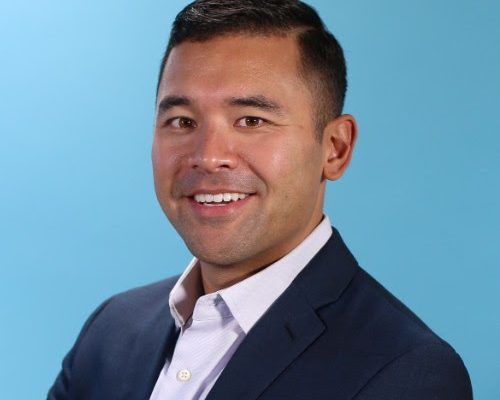They say you aren’t serious about your side hustle until you go full-time. Well, this month I did just that. Leaving the luxuries of job security and a salary is difficult to do. Mix in a global pandemic and I’m either hellbent on making an impact or just mildly crazy.
Throughout my life I’ve always had some sort of side hustle I was passionate about. While none of them were ever intended to be full-time jobs, those experiences prepared me for my venture today as a full-time founder of the PreSales Collective.
But this story isn’t about me, it’s about my co-founder, Yuji Higashi. I’ve learned that the key to building a successful venture is realizing that you can’t do it alone. Two heads are better than one. But that’s if, and only if, you use them to have a multiplier effect. You’ve heard it before: The other person must have skills that complement your own.
That said, many people say you just need a tech partner and a sales partner. I’m here to tell you that I disagree. Does that more limited list potentially make it easier? Yes. But unfortunately, there is no easy recipe for success. What I can tell you though is this: You need to have a similar vision and a complementary skill set.
Here are four founding principles that I’ve come to learn through Yuji’s and my journey that can help you make the right decision in choosing your co-founder:
1. Shared vision
Researchers who study executives’ work activities estimate that only 3 percent of the typical business leader’s time is spent envisioning and enlisting, according to Harvard Business Review. But vision is the second-most valued trait in a leader according to that same research, so finding a partner with a shared passion for creating a compelling vision is vital.
For example, Yuji and I both started local presales communities in Seattle and Chicago, respectively. We were talking about our groups and agreed that if you were not in one of five cities with a local group, how would you connect with other presales professionals outside of your company? A virtual community was needed to connect around the globe.
2. Trust
According to Accenture, research shows that “trust between managers and employees is the primary defining characteristic of the very best workplaces.” The best workplaces beat “the average annualized returns of the S&P 500 by a factor of three.” The data doesn’t lie here, big or small, trust is one of the most important aspects of any relationship.
On a few occasions, Yuji and I have disagreed about how we should handle things moving forward. Once Yuji wanted to release our Slack environment, but I didn’t feel comfortable doing it and was taking a hard stance against it. I felt it was too early and we were still searching for how people interacted with the community. Yuji laid out his vision, the pros and cons, and how this would impact the community. Looking back, releasing our Slack environment ended up being one of the best decisions we ever made: Our Slack workspace has been the pillar creating true two-way communication within our community.
3. Commitment
Atlassian did a study that showed 60 percent or less of work time is actually spent productively. As someone building a new business, it is impossible to reach your goals with those types of productivity numbers.
A former colleague and serial entrepreneur advised me to make sure that me and my co-founder are in the same “life space.” What he was implying is that if the two of us weren’t both ready to sacrifice personal time and put the hours in, it wouldn’t work. The teeter-totter of who is doing more work will always fluctuate in the beginning until you find that appropriate cadence, especially when you haven’t made the leap to full-time entrepreneur. However, the overall commitment to put the work in must exist. In our case, seven days and 60-80 hours per week became the norm and we are both in agreement on that.
4. Integrity
The Economist says it plainly: Integrity is the quality both employees and leaders say matters most in leadership. Acting with integrity means your customers, colleagues and employees know you’ll do the right thing even when it’s difficult, and that’s exactly who people want to be in charge.
Salesforce CEO Marc Benioff said, “businesses have souls,” and I believe this. As you create a new company, there are many opportunities to sell snake oil, paint a vision that you can’t execute on, or even spew bullshit without being held accountable.
Yuji and I have made it a priority to live by our mission and vision. We don’t want those to be merely words on paper (or slides), but a guide to truly walking the walk. Integrity and being a good person go a long way in business nowadays. There are many trajectory-altering decisions that need to be made in the early stage and, if operating with good intentions, you can navigate those without having to compromise your values. How many companies have taken shortcuts or glossed over items because they didn’t believe they would get caught? Compound those decisions and you’re operating without integrity, which will come back to haunt you in the end.
While this is not an exhaustive list, these four principles are critical components to building a thriving venture with the right co-founder. The road to success is long and winding, and includes a number of forks along the way. Listing out roles and responsibilities goes a long way as you take down action items. However, aligned values will help you get out of your own way and achieve milestones faster.
Success doesn’t happen overnight, no matter what anyone tells you. Nothing comes without hard work, flawless execution, and relentless focus. While some may say you need to sprinkle in a little luck, Shellye Archambeau says in her book “Unapologetically Ambitious,” “I learned that success is about preparing for opportunities to appear, so you are ready to take advantage of them when they do. That way, as I like to say, you can make your own luck.”




James Kaikis is the co-founder of the PreSales Collective, the largest global community for PreSales professionals. Kaikis has spent his technology career in a variety of company sizes including startups, scale-ups and enterprise, including Salesforce.com. His experience is in both presale and postsale roles, relentlessly focused on customer centricity through the customer journey.





